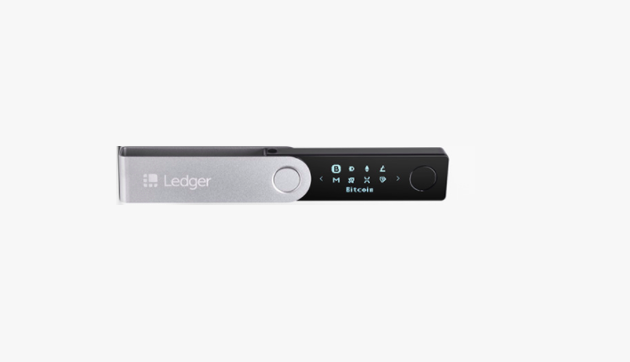For the uninitiated, the cryptocurrency ecosystem can seem a land of mystery with few recognisable landmarks and where the locals speak a foreign language. Perhaps the most accessible entry point is the Bitcoin “wallet”, which at least sounds like something familiar, which in a large part, it is.
A Bitcoin wallet (also called a “digital” or “crypto” wallet) is a personal interface for a cryptocurrency network that provides reliable storage and enables transactions. Jargon aside, it is conceptually the same as a physical wallet, a place where you can “store” your Bitcoin or any other cryptocurrency. Only in this case the wallet is a software program that helps you manage your Bitcoin.
A wallet interfaces with the blockchain network, the shared public ledger of all Bitcoin transactions, and enables you to send, store or retrieve the information regarding your digital assets. Wallets also monitor Bitcoin addresses on the blockchain and update the owner’s balances. The key point is that the wallet stores the information about your Bitcoin, not the actual Bitcoin.
Each wallet contains a secret password, a “private key”, which allows you to transact. The private key can take different forms but is usually a series of 50+ alphanumeric characters, which make it impossible for a hacker to decrypt. The private key also generates a unique cryptographic address (Bitcoin address or public key) that, rather like an email address, specifies the location to which Bitcoin can be sent on the blockchain. Each wallet can also generate a “seed phrase” (a random sequence of 12 to 24 words) which you can use to restore your wallet should you lose your key.
A Bitcoin transaction is a transfer of value between wallets and updated within the blockchain. When you initiate a transaction, the software in your wallet processes the transaction using the private key to create a digital signature. Since digital signatures can only be generated using private keys the security of the system is maintained. The signature is then used to confirm that a specific transaction has come from a particular wallet and cannot be changed once sent.
A Bitcoin address can be shared out to receive funds but private keys should never be disclosed, since they can be used in any wallet to access your cryptocurrency. Whoever knows your private key has control over your Bitcoin. And that would be bad.
Types of Wallets
There is a wide variety of wallet categories to choose from based on your needs, trading style and security risk tolerance. In a general sense wallets are either “hot” or “cold” depending on internet connectivity. Hot wallets are connected to the internet (via a mobile phone or desktop computer) and therefore are more user-friendly as you can trade at any time but are less secure from hackers. Cold wallets (such as hardware wallets) are not connected to the internet and therefore theoretically unhackable. Most active traders use hot wallets given the functional ease of carrying out trades and purchases. They are simple to set up and the funds are quickly accessible. Cold wallets tend to be the domain of the dedicated long-time holders of Bitcoin, who transact less frequently to add to their positions, referred to as HODLers in the Bitcoin community.
Online Wallets
The needs of a cryptocurrency trader often change over time, as they become more sophisticated and accumulate crypto-assets. As a start, new traders often use a wallet provided by a cryptocurrency exchange, which maintains your private keys within the exchange’s security system. This is basically an online hot wallet (also called a “cloud” wallet) which you can access via the exchange from any server connected to the internet. This is great from the standpoint of flexibility, but the reality is that your private key is stored on a server owned by someone else. If that server is hacked and your personal key is compromised your Bitcoin could be gone. In August 2016, hackers stole $72 million in Bitcoin from the Bitfinex exchange. Coinbase is a popular example and has both an online wallet as well as a software wallet. The app has raised over $500m in funding and is now eyeing a direct listing. Coinbase has traded over $455bn, is supported in over 100 countries and has over 43m verified users.
Software Wallets
Software wallets are the most widely-used for cryptocurrency transactions and can be installed on a desktop or mobile device. It provides the user with complete control over their wallet with an improved level of security. Software wallets function as an address for the user to send and receive Bitcoins and store private keys. However, as a hot wallet, there is the potential for hacking depending on your laptop’s level of security. Another example is Ziglu, founded by Mark Hipperson. The startup allows users to trade in crypto assets and recently raised £6m with participation from over one thousand investors. Even within online wallets there are individual wallets and pooled wallets. Apps like Revolut allow you to pool your resources in a virtual currency account, which consists of both “hot” and “cold” wallets.

Hardware wallets
A hardware wallet is a physical device where you can store cryptocurrency and provides a good combination of convenience and safety. A hardware wallet stores your private keys in a secure, offline “cold” device which cannot be hacked and the stored coins are readily available when you need them. Hardware wallets come in a range of forms but the most common is similar to a USB stick. As a physical device, they are susceptible to damage or loss, so it is important to back-up your wallet and keep your restoration details in a safe place. Remember, your restoration details open your wallet so be very careful who you share them with. Some examples include Trezor and Ledger. The latter raised $75m in its Series B funding round in 2018 and is one of the biggest players in the market. Users can buy, sell and store and manage their cryptocurrency within the app.
Paper wallets
Paper wallets are a cold storage option which uses, as the name suggests, one of the most simple and ancient methods of security. They are particularly useful for low volume traders who want to hold their cryptocurrency for a long time in a highly secure environment. A paper wallet is created by using an open source program to generate unique public and private keys on a piece of paper, which is stored in a secure place. The keys are generated off-line therefore there is no exposure to outside threats and the program can be deleted after use. The keys are printed in the form of QR codes which you can later scan to use in transactions. Paper wallets provide complete control over your information in complete security. You just need to take care of that piece of paper.
One example of a cold storage option are card wallets. These are like credit cards and provide a secure way to store cryptocurrency offline and have originally been favoured by users due to this safety aspect. These wallets do not store physical bitcoin, and the term ‘paper wallets’ simply refers to the manner of storage.



